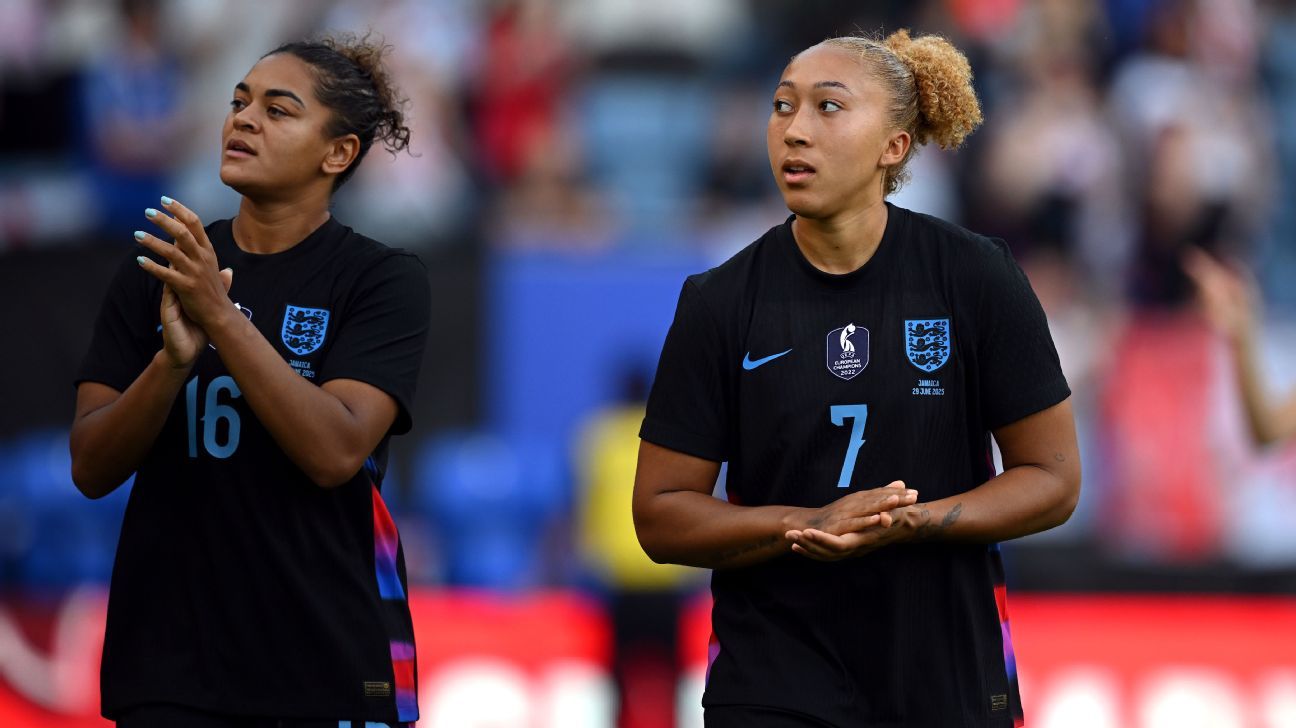Jess Carter expressed a sense of relief, saying it felt like “a sigh of relief,” realizing she wasn’t the only English player to miss a penalty in the shootout against Sweden, which secured England’s place in the women’s European Championship final.
Carter, who faced online racist abuse throughout the tournament, was concerned that teammate Lauren James would receive severe social media backlash as well.
Notably, Beth Mead, Alex Greenwood, and Grace Clinton, all white, have also contributed to England’s progress, culminating in their victory over Spain in the final, also decided by penalties.
In an interview with ITN, Carter stated:
“It’s not about wanting to fail; it’s about understanding the implications for us (the Black English players) if we miss.”
After missing a penalty in the Euro 2020 final against Italy, Marcus Rashford, Jadon Sancho, and Bukayo Saka were subjected to racial abuse.
Carter shared that the psychological toll from the abuse she experienced during the tournament left her feeling “scary” when England head coach Sarina Wiegman announced her selection for the final.
“This is the first time I’ve felt this way. It’s terrifying to play,” she admitted.
“It was a significant match, but combining that with fears of abuse—whether related to football or racial—added to the pressure.”
– Jess Carter misses the Lionesses’ bus parade for NWSL commitments
– Will Sarina Wiegman face consequences?
– Criticism against those who abused Carter is aimed at true English fans – Stanway
Reflecting further on the impact of the abuse, Carter added:
“It forces you to double-check every action. It’s not a healthy mindset and doesn’t help my confidence to step back on the pitch. My family has been deeply affected and saddened by it.”
Football Association CEO Mark Bringham noted that during the tournament, the organization coordinated with British police to address the “abhorrent” abuse.
Editorial Opinion: This news matters to soccer fans as it highlights the ongoing challenges of racism in sports, particularly how societal pressures can impact players’ mental health. The conversation surrounding accountability and support for athletes against such abuse is crucial for fostering a more inclusive and respectful environment in the world of soccer.



